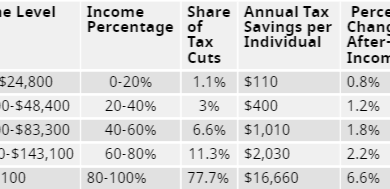The Trump Tariff Plan’s Foreign Policy Implications Cannot Be Ignored
Cameron Bird
Staff Writer
Former President Donald Trump is a huge advocate of tariffs. He has been quoted as calling them, “…the greatest thing ever invented” according to PBS News. Whether the policy issue be domestic, foreign, social, political, or economic, Trump tends to introduce tariffs as a mechanism for positive change. Domestically this has not been received very well, as Trump’s opponents argue it will raise prices on the average American, and risk straining relations between the United States and key trading partners. There is significant merit to this argument, given Trump’s trade war with China during his first presidency, due to increasing tariffs, and economists project middle-class Americans may see their budgets increase at least $1700 annually, and even up to $2500, according to Forbes. While these domestic economic concerns are assuredly worth noting and remain significant in the context of the U.S. November presidential elections, more discussion is required as to the foreign policy implications of Trump’s tariff policy, and his pattern of decision-making related to tariffs. The former president views foreign policy, and foreign relations, as a transactional exchange, wherein the U.S. must be benefitting explicitly, or otherwise disengage from the relations altogether. This is expressed in his views regarding NATO, South Korea, trade with China, and the war in Ukraine. However, this zero-sum foreign policy strategy is inherently ineffective, problematic and dangerous. Trump, with his lack of foreign policy expertise, maintains a worldview that is skeptical and fixated on zero-sum solutions and therefore is poised to destabilize the U.S. role as a power player and problem solver on the world stage.
In the context of the U.S. foreign policy as a power broker, Donald Trump would enter the White House in January of 2025 in an incredibly unique situation. The United States, given its conduct in the Middle East and failure to broker peace, is losing credibility on the world stage, according to the Washington Post. The values of liberal democracy, self-determination, and civil liberties appear to be less and less aligned with U.S. policy as the situation in Gaza continues to deteriorate, with countless civilians dying and Palestinian statehood further from realization than ever. As a result, the U.S. vision of a liberal democratic world order maintains less potency ideologically to those watching the conflict in Gaza. Furthermore, the U.S. finds itself at a crossroads politically, over whether or not to sustain Ukraine’s efforts in its defense against Russian aggression as the war drags into a fourth year. Perhaps most significantly, the U.S. must balance against China, whose military power, technological advances, and economic potential make it the rising revisionist power on the world stage, with a broad appeal to the Global South as the forefront partner regarding development and security. From an even larger perspective, Donald Trump would find himself the leader of the most powerful democracy in the world, as authoritarianism continues to gain traction within the political spheres of the world traditionally associated with democracy, as outlined in reports by the Global State of Democracy Initiative. Given these set of circumstances, not only is Trump’s foreign policy critically important in guiding the U.S. through these challenges, but will also likely be the framework for the next era of global politics. Trump’s focus on transactional foreign policy, through the use of tariffs and military exchanges, places immense significance upon his choices as President. If Trump is to engage in retaliatory trade tactics, as he did with China, it exposes the U.S. to an expanding trade deficit, just as it did in his first term, according to the Associated Press Furthermore, the trade war in Trump’s first presidency failed to protect the economic sectors that Trump had hoped to reconsolidate, as he lost a net value of more than 180,000 manufacturing jobs by the end of his presidency, according to FactCheck. The U.S. runs the risk of continuing that trend and gambling away the current window of economic advantage it has over China.
The use of tariffs could thoroughly impact the network of alliances, and meaningful diplomatic relationships the U.S. has around the world. If Trump does in fact institute a tariff across the board of 20%, that carries significant economic and political damage. There is harm in Trump’s messaging, as well as the tangible financial harm from import taxes. The U.S. would have to explain to important diplomatic partners, such as its European partners, ASEAN, and Japan, why it was instituting tariffs on goods coming from those countries. If the former president does indeed follow through on these policies, there could be irreparable damage to critically important diplomatic relationships, in 2025 and beyond.
Image courtesy of Getty Images


